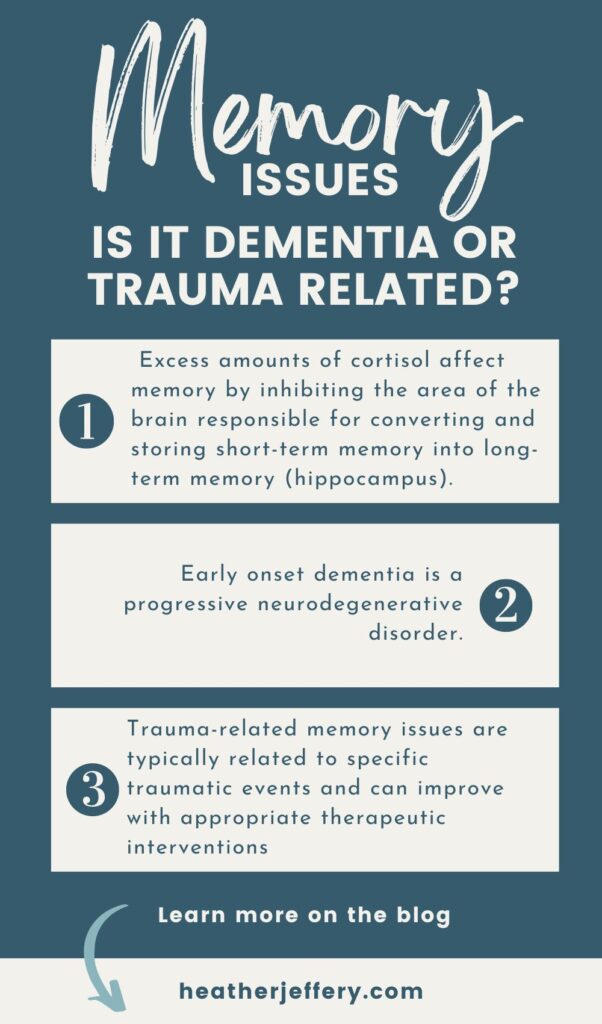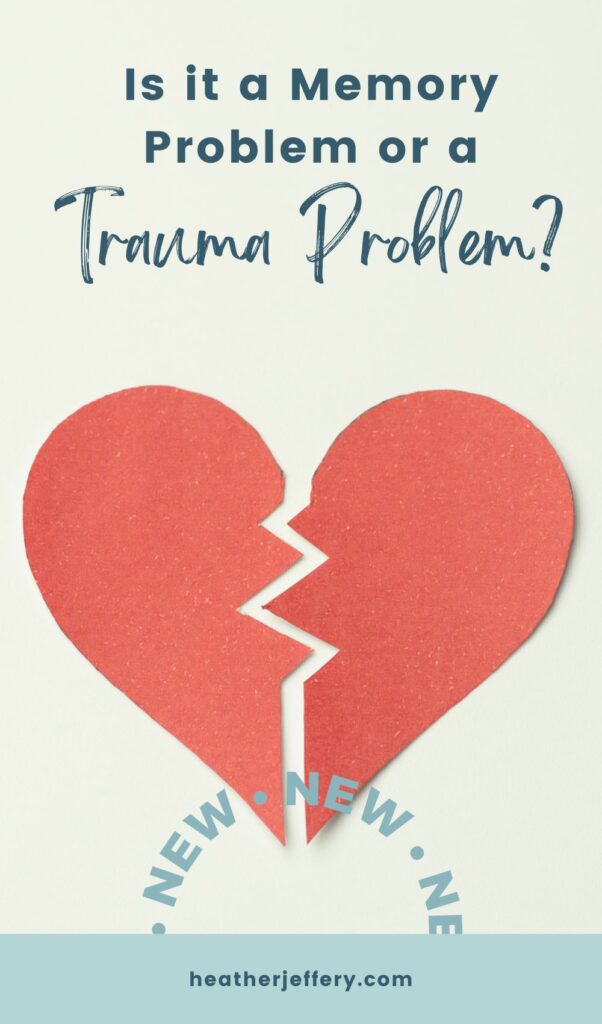Is it a Memory Problem or a Trauma Problem?
Imagine you are running for your life.
Your heart is pumping, adrenaline is at an all-time high, and you are focused on nothing but survival.
Now imagine during that time someone text you a reminder of your next dentist appointment, requested everything-bagels from the grocery store, and told you their cousin Steve was having a retirement party next Friday evening requesting your presence at a local restaurant after work.
You finally outrun the predator long enough to stop running and catch your breath. You resume your routine tasks on autopilot but with one eye open and ready to resume running at any moment, never fully at ease.
A week later, you receive a call from the dentist letting you know you missed your morning appointment and your daughter is upset you forgot the everything-bagels for the third time. As if that were not enough, you can’t find your husband. You text him only to receive a response of, “I’m at Steve’s retirement party, how could you forget? You’ve been forgetting a lot lately. I think you might have a memory problem and I’m concerned about you.”
You hang up and wonder if he’s right. You have been forgetful lately, which is not like you. Something is definitely wrong. Before you have a chance to give it further attention, you hear a rustling nearby and instinctively, you start running again. In fact, this cycle has become so routine you don’t even realize you are running again.
The next morning you can barely make it out of bed. Why are you so tired? You haven’t been doing anything other than forgetting appointments and grocery items. You even missed Steve’s retirement party last night and stayed in therefore, you should be well rested. Wait, I hear something… time to start running again.

Excess amounts of cortisol also affect memory
Although it’s a metaphor, this is sadly the cycle of repetitive trauma. The body’s natural response to trauma is a fight or flight response. When this response is prolonged (as in repetitive trauma), the body is robbed of the energy it needs to sustain everyday processes resulting in physical fatigue, difficulty focusing, and brain fog. Most of us have heard of the stress hormone, cortisol and are aware of its impact on metabolism and the immune system. But excess amounts of cortisol also affect memory by inhibiting the area of the brain responsible for converting and storing short-term memory into long term memory (hippocampus).
What does that mean? It means exposure to repetitive trauma results in increased levels of cortisol hormone, which can affect our memory.
Is it early onset Dementia?
Less than a decade ago, I experienced this personally. I was convinced I had early onset dementia. I had always been able to remember even the most insignificant details with immaculate recall. I never missed an appointment and was never late paying a bill.
At some point, however, that changed. I worried something was severely wrong with me. To make matters worse, others noticed it too and only “confirmed” my suspicions. I began to doubt my own reality.
Did I have a problem? Was it early onset dementia? As the list of questions poured out and fears escalated, my cortisol levels only rose higher. Something had to change but where did I start?
Aware I had not been emotionally or physically healthy in some time, I made an appointment with my doctor only to be met with a prescription for anxiety medication. Great, let’s add anxiety to the list.

Trauma-related memory issues
Of course I was anxious. My marriage was crumbling and I was in a powerless loop of striving with no results… or so I thought. My situation was bigger than me and after years of asking God for direction, He led me to a Christian therapist in my area. I had reached out to various places before for information on marriage counseling only to be met with gigantic fees or a six-month waiting list. This time was different – God was directing me to seek help for ME.
I encourage you to do the same if you can relate to this experience. If you or someone you know is experiencing memory difficulties, it is crucial to seek professional help for an accurate assessment and appropriate solution including the most effective interventions. While trauma-related memory issues may exhibit similarities to early onset dementia, it is important to note that the underlying causes and trajectories of these conditions are distinct. Trauma-related memory issues are typically related to specific traumatic events and can improve with appropriate therapeutic interventions, whereas early onset dementia is a progressive neurodegenerative disorder.

Victory and Healing
I am happy to report I did not have early onset dementia and my memory issues resolved rather rapidly once I was no longer exposed to trauma on a daily basis.
I pray the same for you and anyone in your life who may have a similar experience. If you are exposed to emotional abuse or other associated repetitive trauma your physical and mental health will be impacted. As we are not always able to recognize or name the traumas in our own lives, it is often difficult for medical professionals to see the whole picture. If this is you, please reach out to a licensed mental health practitioner for help. You do not have to navigate the confusion alone.
Heather
Share to spread awareness










